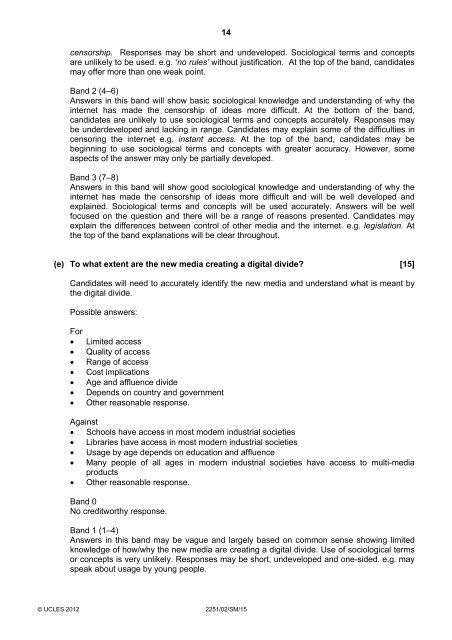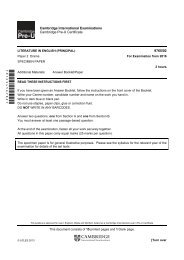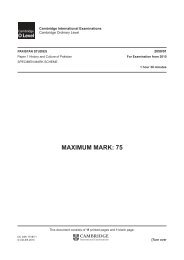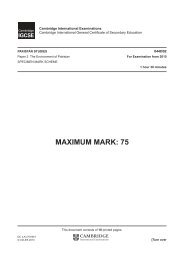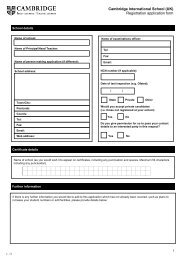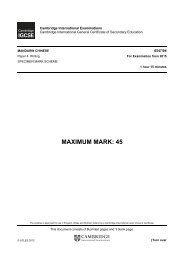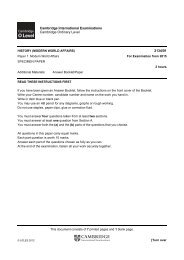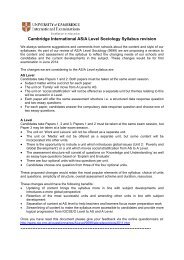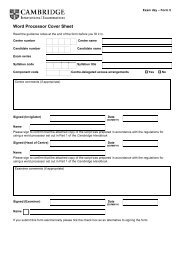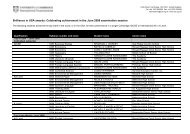MAXIMUM MARK: 70 - Cambridge International Examinations
MAXIMUM MARK: 70 - Cambridge International Examinations
MAXIMUM MARK: 70 - Cambridge International Examinations
Create successful ePaper yourself
Turn your PDF publications into a flip-book with our unique Google optimized e-Paper software.
14censorship. Responses may be short and undeveloped. Sociological terms and conceptsare unlikely to be used. e.g. ‘no rules’ without justification. At the top of the band, candidatesmay offer more than one weak point.Band 2 (4–6)Answers in this band will show basic sociological knowledge and understanding of why theinternet has made the censorship of ideas more difficult. At the bottom of the band,candidates are unlikely to use sociological terms and concepts accurately. Responses maybe underdeveloped and lacking in range. Candidates may explain some of the difficulties incensoring the internet e.g. instant access. At the top of the band, candidates may bebeginning to use sociological terms and concepts with greater accuracy. However, someaspects of the answer may only be partially developed.Band 3 (7–8)Answers in this band will show good sociological knowledge and understanding of why theinternet has made the censorship of ideas more difficult and will be well developed andexplained. Sociological terms and concepts will be used accurately. Answers will be wellfocused on the question and there will be a range of reasons presented. Candidates mayexplain the differences between control of other media and the internet. e.g. legislation. Atthe top of the band explanations will be clear throughout.(e) To what extent are the new media creating a digital divide? [15]Candidates will need to accurately identify the new media and understand what is meant bythe digital divide.Possible answers:For• Limited access• Quality of access• Range of access• Cost implications• Age and affluence divide• Depends on country and government• Other reasonable response.Against• Schools have access in most modern industrial societies• Libraries have access in most modern industrial societies• Usage by age depends on education and affluence• Many people of all ages in modern industrial societies have access to multi-mediaproducts• Other reasonable response.Band 0No creditworthy response.Band 1 (1–4)Answers in this band may be vague and largely based on common sense showing limitedknowledge of how/why the new media are creating a digital divide. Use of sociological termsor concepts is very unlikely. Responses may be short, undeveloped and one-sided. e.g. mayspeak about usage by young people.© UCLES 2012 2251/02/SM/15


